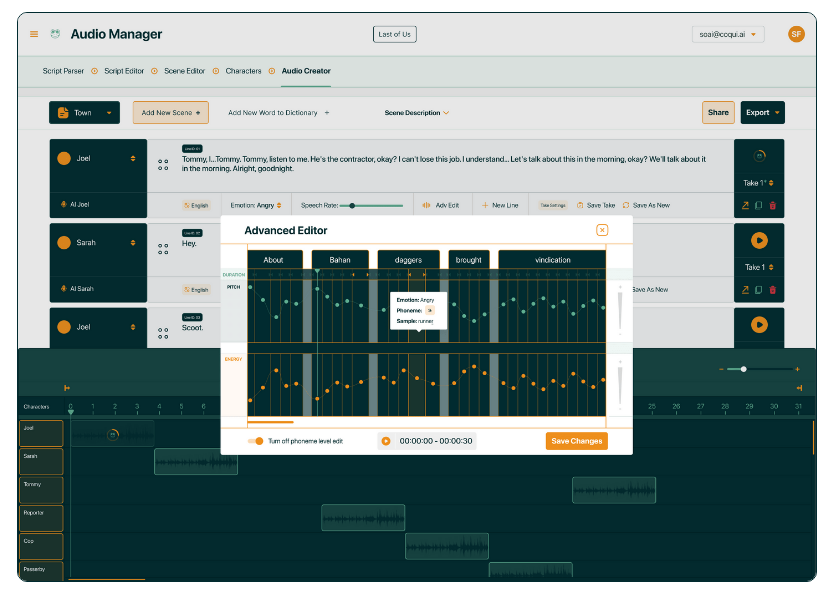CoquiTTS: An Open-Source Text-To-Speech Library
a deep learning toolkit for Text-to-Speech, battle-tested in research and production
Table of Content
CoquiTTS is a library for advanced Text-to-Speech generation. It's built on the latest research, was designed to achieve the best trade-off among ease-of-training, speed and quality.
It comes with pretrained models, tools for measuring dataset quality and already used in 20+ languages for products and research projects.
CoquiTTS is written with Python, and it can be a handy tool for video game developers, post-production, dubbing, and creating educational videos.
CoquiTTS developers are working now on, Coqui studio which will offer a straightforward simple user-friendly interface to clone and create text-to-speech audios in MP3 format.

Features
- High-performance Deep Learning models for Text2Speech tasks.
- Text2Spec models (Tacotron, Tacotron2, Glow-TTS, SpeedySpeech).
- Speaker Encoder to compute speaker embeddings efficiently.
- Vocoder models (MelGAN, Multiband-MelGAN, GAN-TTS, ParallelWaveGAN, WaveGrad, WaveRNN)
- Fast and efficient model training.
- Detailed training logs on the terminal and Tensorboard.
- Support for Multi-speaker TTS.
- Efficient, flexible, lightweight but feature complete
Trainer API. - Released and ready-to-use models.
- Tools to curate Text2Speech datasets under
dataset_analysis. - Utilities to use and test your models.
- Modular (but not too much) code base enabling easy implementation of new ideas.
Implemented Models
Spectrogram models
- Tacotron: paper
- Tacotron2: paper
- Glow-TTS: paper
- Speedy-Speech: paper
- Align-TTS: paper
- FastPitch: paper
- FastSpeech: paper
- SC-GlowTTS: paper
- Capacitron: paper
End-to-End Models
Attention Methods
- Guided Attention: paper
- Forward Backward Decoding: paper
- Graves Attention: paper
- Double Decoder Consistency: blog
- Dynamic Convolutional Attention: paper
- Alignment Network: paper
Speaker Encoder
Vocoders
- MelGAN: paper
- MultiBandMelGAN: paper
- ParallelWaveGAN: paper
- GAN-TTS discriminators: paper
- WaveRNN: origin
- WaveGrad: paper
- HiFiGAN: paper
- UnivNet: paper
License
The project is released under the MPL-2.0 License.










